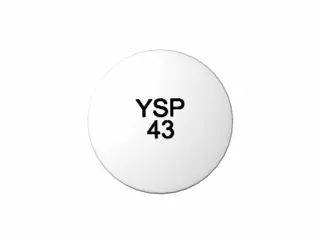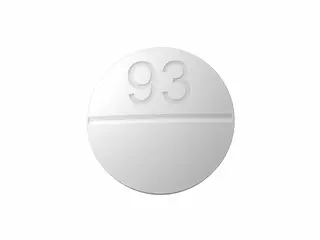Gastrointestinal Health
Discover effective supplements and remedies designed to support digestive balance, relieve discomfort, and promote overall gastrointestinal health. Shop trusted products to improve digestion, reduce bloating, and maintain a healthy gut.
Gastrointestinal health is vital for overall well-being. Many people face digestive problems such as acid reflux, irritable bowel syndrome (IBS), diarrhea, and ulcers. Various medications can help manage these conditions effectively. This review covers several popular drugs used to treat gastrointestinal issues.
Aciphex (rabeprazole) is a proton pump inhibitor (PPI). It reduces stomach acid production. It helps treat gastroesophageal reflux disease (GERD) and ulcers. Users report quick relief from heartburn and acid reflux. Aciphex is usually well-tolerated, with few side effects. Some patients may experience headaches or nausea. It is taken once daily before meals.
Asacol (mesalamine) is used to treat ulcerative colitis. It works by reducing inflammation in the colon. Many patients find it effective in controlling flare-ups and maintaining remission. Side effects can include mild stomach upset and headache. Asacol is usually taken multiple times a day. It is important to follow dosing instructions carefully.
Colospa (mebeverine) is an antispasmodic used for irritable bowel syndrome (IBS). It helps relieve stomach cramps and abdominal pain. Many users notice fast symptom relief after taking Colospa. Side effects are generally rare but may include skin rash or dizziness. It is recommended to take it before meals.
Imodium (loperamide) is an anti-diarrheal medication. It slows down bowel movements to reduce diarrhea. Imodium is widely used and trusted for managing acute and chronic diarrhea. Users should avoid it if bacterial infection is suspected. Common side effects can be constipation or mild abdominal pain. It works quickly, often within an hour.
Maxolon (metoclopramide) helps with nausea, vomiting, and gastric emptying issues. It stimulates stomach muscles to improve digestion. Maxolon is effective for gastroparesis and other digestive delays. Side effects can include drowsiness or restlessness. It should be used short-term and under medical supervision.
Motilium (domperidone) is similar to Maxolon but with fewer central nervous system effects. It helps reduce nausea and improves gut motility. Motilium is useful for indigestion and reflux symptoms. Some users report dry mouth or headache as side effects. It should not be used without doctor advice due to possible heart risks.
Nexium (esomeprazole) is another proton pump inhibitor. It effectively lowers stomach acid to treat GERD, ulcers, and Zollinger-Ellison syndrome. Many find Nexium provides fast and lasting relief from acid-related symptoms. Side effects may include headache and abdominal pain. Nexium is often taken once daily, before meals.
Pentasa (mesalamine) is used in the treatment of inflammatory bowel disease. It acts locally in the intestines to reduce inflammation. Pentasa is helpful for Crohn’s disease and ulcerative colitis. Many patients achieve symptom control with minimal side effects. Common issues can be nausea or headache. Dosage can vary depending on the condition severity.
Pepcid (famotidine) is an H2 receptor antagonist. It decreases stomach acid production, helping with heartburn and ulcers. Pepcid acts faster than PPIs but for a shorter duration. It is often chosen for milder acid reflux symptoms. Side effects are rare but may include headache or dizziness. It is usually taken one to two times daily.
Prevacid (lansoprazole) is a widely prescribed proton pump inhibitor. It offers relief from acid reflux, ulcers, and erosive esophagitis. Many users find significant symptom improvement. Some report side effects like diarrhea, headache, or abdominal pain. Prevacid is recommended before meals for best effect.
Prilosec (omeprazole) is one of the first PPIs developed. It reduces acid production to treat GERD, ulcers, and Zollinger-Ellison syndrome. Prilosec is popular due to its rapid action and effectiveness. Long-term use should be monitored because of possible nutrient absorption issues. Side effects may include headache, nausea, and diarrhea.
Protonix (pantoprazole) is another proton pump inhibitor effective for acid-related disorders. It reduces gastric acid and supports ulcer healing. Protonix is well tolerated with most common side effects being headache and diarrhea. It is often prescribed after endoscopic procedures for esophageal conditions.
Reglan (metoclopramide) works by enhancing stomach motility and reducing nausea. It is often used for gastroparesis and reflux symptoms. Reglan carries a warning for possible movement disorders if used long-term. Short-term use usually causes mild side effects like fatigue or restlessness. It requires prescription and careful dosing.
Xifaxan (rifaximin) is an antibiotic used for traveler’s diarrhea and irritable bowel syndrome with diarrhea (IBS-D). It targets bacteria in the gut without systemic absorption. Xifaxan helps reduce symptoms like bloating, cramping, and diarrhea. Side effects are minimal; some patients experience nausea or headache. It is usually taken for short courses.
Overall, medications for gastrointestinal health vary widely depending on the condition. Proton pump inhibitors like Nexium, Prilosec, and Aciphex are the mainstay for acid reflux and ulcers. Anti-inflammatory drugs such as Asacol and Pentasa are crucial for inflammatory bowel disease. Antispasmodics like Colospa and anti-diarrheals like Imodium address functional bowel symptoms. Prokinetics like Maxolon and Reglan help with gastric motility issues, while antibiotics like Xifaxan target bacterial causes.
Choosing the right medication depends on symptoms, diagnosis, and individual health. Consultation with a healthcare professional is essential for safe and effective treatment. Most of these drugs have good safety profiles but should be used as directed. Awareness of potential side effects and interactions is important.
















